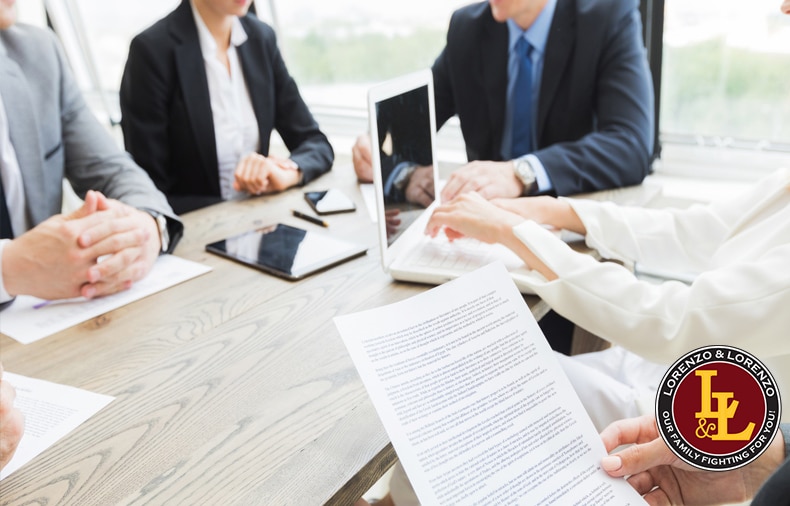
A comprehensive guide to filing a personal injury lawsuit
If you were injured in Tampa, Florida, you are likely considering filing a claim against any individuals or corporations who were responsible. It is important to go over a personal injury case checklist with an experienced accident lawyer near you so you understand what to do next.
Here’s an overview of the 7 phases of a personal injury case:
Phase 1: Immediately after the accident
The very first step is to assess any injuries you or anyone else may have sustained and seek immediate medical attention.
If your injuries were not so serious that you are immobilized or incapacitated, gather as much information about the scene of the accident. Take photos and ask any witnesses to remain at the scene to provide statements.
Make sure to file a written report. After a car accident, this means contacting the police as soon as possible. If the accident was a slip-and-fall in a store, make sure to file a written report with the store manager before leaving.
Phase 2: Seeing a doctor
The next step in the personal injury lawsuit settlement process is to seek follow-up medical care. Many people who are involved in an accident do not experience pain right away. You may realize that you are sore 2-3 days after an accident.
Tell your medical providers about every physical problem you may have experienced, even if you think the pain isn’t severe. Follow up on any referrals and avoid delaying treatment. Medical records are essential for documenting the extent and nature of your injuries.
Ask your doctor what to expect during your recovery, whether or not you will need surgery, how the injury may limit you in the future. and how long your recovery is expected to take.
Phase 3: Hiring a lawyer
Hiring an experienced personal injury lawyer is the best way to ensure that you receive fair compensation for your claim. An attorney can carefully evaluate your case to ensure that you receive compensation for all damages, including lost wages, pain and suffering, loss of companionship experienced by your family and future losses.
Most lawyers offer a free initial consultation. When you talk to an attorney, make sure you understand what happens in a personal injury lawsuit. Ask about the attorney’s experience handling your type of case in the past. Many personal injury attorneys focus on a particular area, such as motorcycle accidents or cases involving traumatic brain injuries. Choose the best attorney for your particular case.
Phase 4: Negotiating a settlement
Prior to filing a lawsuit, your attorney may attempt to negotiate a settlement on your behalf. You might be asked to sign a release form when settling your case. Don’t sign a release until you know the full extent of your injuries and other losses, because this will prevent you from making any future claims against the defendant.
The amount you can expect to receive will depend on many factors, including the extent of your injuries, whether or not your injury is permanent, if you suffered economic damages (such as the loss of a career) and whether or not you were partially at fault for the accident.
Explore the mediation process in personal injury cases, including when it is appropriate, if it’s legally binding, and your rights if a mediation agreement is violated.
Phase 5: Filing a lawsuit
In some cases, your attorney may need to file a lawsuit against those responsible if settlement negotiations have failed. This may include an individual or a company. An example of a personal injury case that could be filed against a corporation is a defective product lawsuit.
After filing a lawsuit, all defendants must be served with the complaint and a summons. A summons states the amount of time the defendant has to file an answer with the clerk’s office.
The time to file a lawsuit after an incident is limited by Florida’s statutes of limitation. Consult an attorney as soon as possible to ensure that your claim is filed in a timely manner.
Phase 6: Going to court
Prior to trial, your case may be set for depositions during which attorneys for both sides and a court reporter will be present. The difference between a court trial and deposition is that there is no judge or jury present.
If your case proceeds to trial after deposition, you may be called as a witness to testify. The most important consideration when testifying is to be truthful in all your statements. If there is anything you don’t understand, ask for the question to be repeated. It’s okay to say you don’t know or don’t remember.
Other witnesses who may testify in court include witnesses to the accident, your medical providers, family members and expert witnesses, such as an accident reconstruction expert.
If you live in the Tampa area, your case may take place at one of the following courthouses:
- George E. Edgecomb Courthouse
- Old Courthouse
- Hillsborough County Courthouse Annex
- Sam M. Gibbons United States Courthouse
Phase 7: Filing an appeal
If your case is dismissed prior to trial or if you lose your case, filing an appeal may be the best next step. There are time limits for filing an appeal, so notify your attorney as soon as possible. After you file an appeal, your attorney will submit a brief to the state court of appeals, and the court will issue an opinion on whether or not any errors were made at the trial court level.
Filing a personal injury lawsuit is a complicated and tedious process. If you’re not familiar with Florida’s laws and procedures, your best chance is to hire an experienced and knowledgeable attorney near you who can fight on your behalf.







